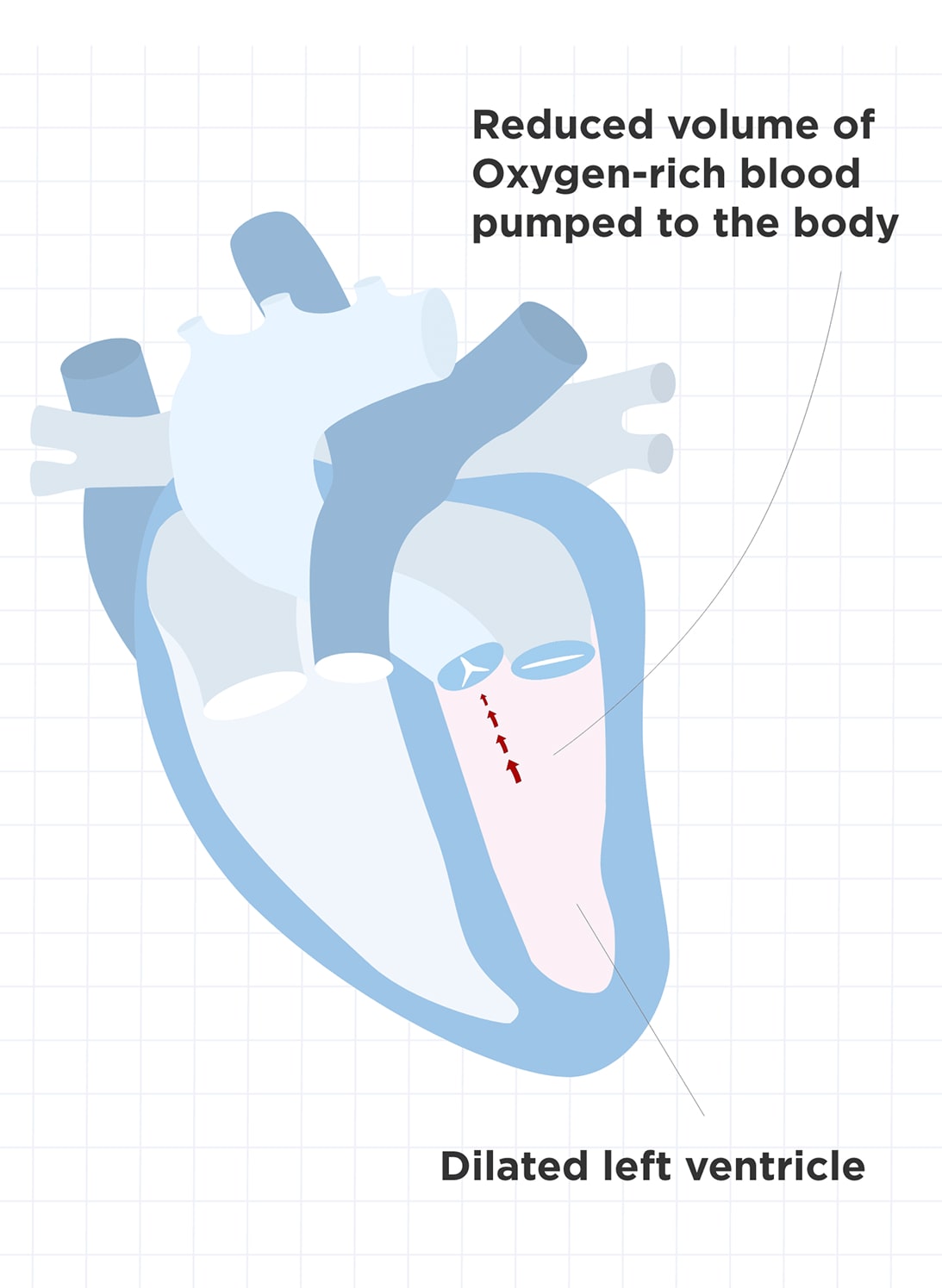
Exercise Watches for Women
Discover exercise watches for women by Withings. Track your workouts, heart rate, and more with accuracy. Designed for women who value...
If you’re interested in the connection between weight and coronary heart disease, you’ve come to the right place. Learn more about obesity and cardiovascular risk, hypertension and weight, and how you may be able to improve heart health by maintaining a healthy weight.

Heart disease is the leading cause of death in the United States. One person dies every 37 seconds from it, and 50% of men and 64% of women who die have no prior symptoms. And weight and heart disease are connected—overweight and obesity can put you at a higher risk of heart disease.
But how can an unhealthy weight damage your heart and lead to heart failure?
Fortunately, it may be possible to prevent or treat heart failure through lifestyle modifications.
"Even people of normal weight can damage their heart if they gain weight over time."
Source: Ian Neeland M.D., Journal of the American Heart Association, July 2019
Weight and cardiovascular issues are strongly connected. For example, there is a strong link between obesity and hypertension, which can lead to heart failure, atrial fibrillation, coronary heart disease, and other dangerous conditions—and losing extra pounds may help to lower your blood pressure.
The Framingham Heart Study, a long-term study on cardiovascular health begun in 1948, has established that cardiac health can be influenced by lifestyle and environmental factors.
The study showed that 78% of hypertension cases in men and 65% in women are directly related to obesity, and high blood pressure and high cholesterol are major risk factors for cardiovascular disease.
Heart failure, also known as congestive heart failure, is a chronic condition in which the heart doesn’t pump blood as well as it should. The heart may become enlarged or pump faster to compensate, causing fatigue and breathing problems.
Complications from heart failure are serious and may include liver or kidney damage, arrhythmias, and heart valve problems. You may also gain weight during heart failure due to fluid accumulation.

Carrying excess fat, especially around the abdomen, has been linked to heart disease. But did you know that the excess weight itself can damage your heart? Johns Hopkins researchers have proven that the weight itself can cause injury to your heart muscle.
In a study published in the Journal of the American College of Cardiology: Heart Failure, the authors reported that those who were the most obese and had the highest levels of troponin, an enzyme released by injured heart muscle cells, were nine times more likely to develop heart failure than those of normal weight with undetectable troponin levels.
In another study, researchers found that people who gained even a little weight—even as little as 5 percent—were more likely to experience a thickening of the left side of the heart, which may indicate heart failure.
Other experts have pointed to the relationship between weight and the risk of cardiovascular disease. For example, the European Society of Cardiology says:
“As body mass index and fat mass increase, so does the risk of aortic valve stenosis,”
Aortic Stenosis is a form of valvular heart disease that may lead to heart failure.
The upshot? Even a little excess weight can have a big impact on your heart—and your cardiovascular health.
Even small changes can make a big difference. In a 2016 study in Translational Behavioral Medicine, researchers found that patients who lost even 5–10% of their body weight showed significant reductions in triglycerides, total cholesterol, and LDL cholesterol.
"Five to 10% weight losses produced improvements in cardiovascular risk factors, but greater weight losses were associated with even greater improvement."
And in an article in Progress in Cardiovascular Diseases, the authors note, “Intentional weight loss, accomplished through behavioral weight loss and exercise, improves insulin sensitivity and associated cardio-metabolic risk factors such as lipid measures, blood pressure, measures of inflammation and vascular function both in healthy individuals and patients with coronary heart disease. Additionally, physical fitness, physical function and quality of life all improve.”
The takeaway? Moderate weight loss can have a big impact on the heart.
The short answer: It’s complicated. While some body fat is essential, too much of it may increase your risk of cardiovascular disease.
Many experts suggest aiming for a body mass index (BMI) within the healthy weight range: between 18.5 and 24.9 for an adult 20 years of age or older. But you should know that BMI doesn’t tell the whole story: other factors, such as age and gender, also play a role in weight. Knowing your body composition may give you a more complete picture of your health.
A side note: Some researchers believe that prevention efforts should focus less on BMI and more on underlying societal and environmental causes of obesity. In an article published in The BMJ, the authors write:
“Although the health hazards of obesity have been clearly established, exactly where healthy weight ends and unhealthy weight begins is a matter of controversy.”
One thing we do know: as we mentioned earlier, location matters. Excess abdominal or visceral fat-—the fat that wraps around your organs—can be dangerous, increasing insulin resistance and other cardiovascular risk factors. In a report in Circulation entitled “Body Fat Distribution and Risk of Cardiovascular Disease: An Update,” the author notes, “On the other hand, visceral adipose tissue and liver fat may be key drivers of plasma markers of the cardiometabolic risk profile, such as insulin resistance, glucose intolerance, [and] inflammation.”
So if you’re gaining weight, keep an eye on where you’re gaining it, and consider tracking your body composition to see a more complete picture. If you have concerns, ask your doctor.
If you’re overweight or obese, weight loss may seem daunting. But we have some suggestions that might help.
Knowing your BMI, blood pressure, blood sugar, and cholesterol and monitoring them regularly can help you to stay on track, and alert your doctor if you see something you’re concerned about.
Knowing your numbers is important, but it’s also good to keep an eye on your symptoms. For example, symptoms of hypertension include shortness of breath, an irregular heartbeat, chest pains, headaches, nausea, and dizziness. Symptoms of heart disease in women may be a little different. If you experience anything new or unusual, it might be a good idea to check in with your doctor.
Even a little weight loss can help to improve your health, and setting a realistic weight loss goal can help. Many experts suggest aiming for 1 to 2 pounds per week—which may not sound like much, but can really add up over time. If it’s easier, you may wish to set a process goal instead—for example, walking 7,000–10,000 steps per day. In short, set a weight goal for a healthy heart.
In addition, watch out for yo-yo dieting. In a large-scale study, researchers from the Catholic University of Korea found that erratic weight gain and loss increased the risk of cardiac events.
In the study, researchers found that people whose weight, blood pressure, cholesterol, and blood sugar levels fluctuated were 127 percent more likely to die.
They were also 43 percent more likely to have a heart attack and 41 percent more likely to have a stroke. So, instead of aiming for drastic weight changes, it’s better to look for easy lifestyle alterations that you can stick to.
Need ideas? Check out tips from the American Heart Association, including easy food substitutions to help you feel satisfied.
Whether you’re trying to reach an optimal weight, maintain a healthy weight, or achieve moderate weight loss, staying active is really important.
In a Withings study, we found that users who logged 4,000 steps or fewer had an average systolic blood pressure of 127, versus 123 for those logging at least 12,000 steps a day. We also found that sedentary users also logged an average heart rate 7% higher than more active users.
When it comes to weight and cardiovascular disease, there’s a lot you can do to reduce excess weight risk and improve heart health. If you’re worried about weight and the risk of heart failure, there are steps you may be able to take to control it. Know your numbers, understand weight loss effects on the heart, consider losing weight or preventing weight gain, and most importantly, check with your doctor.

Exercise Watches for Women
Discover exercise watches for women by Withings. Track your workouts, heart rate, and more with accuracy. Designed for women who value...

Fitness Watches for Men: Track Your Health & Performance
Explore our fitness watches for men by Withings. Monitor your activity, heart rate, and sleep with precision. These watches are designed...

Body fat percentage: Understanding and measuring body fat
Learn what body fat percentage is, how to measure it accurately, and discover healthy ranges and lifestyle tips to reduce excess body fat.

Weight and Blood Pressure: How Obesity Affects Hypertension
Discover how excess weight and obesity contribute to high blood pressure, the risks involved, and how weight loss can help manage...
on your first order by registering
By registering, you agree to receive advertising e-mails from Withings. However, if you change your mind, you can unsubscribe at any time. *The discount is valid for any purchase (except BeamO and U-Scan Nutrio) of at least €100 for 30 days after reception of the code. Only valid on withings.com, and while supplies last. This offer is only valid for first-time purchases. These offers cannot be combined.